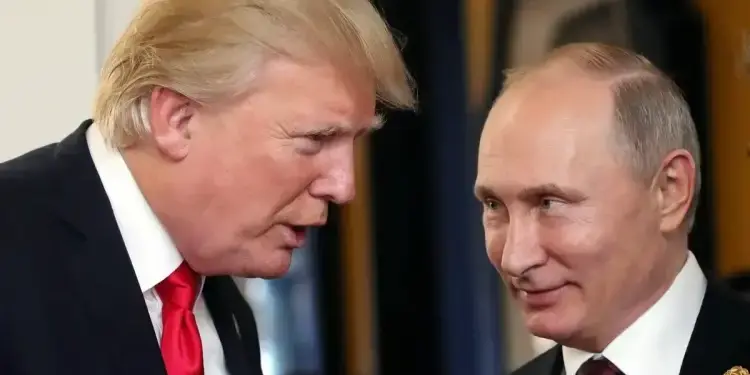During a stormy meeting at the White House this Friday, February 28, Donald Trump attacked Volodymyr Zelensky violently, accusing him of not being “sufficiently grateful” towards the United States. His vice-president, JD Vance, added, reproaching the Ukrainian president a “lack of respect”. However, while Washington is asking kyiv’s thanks, it was Vladimir Putin who, in reality, would have all the reasons to express his gratitude to Trump.
Zelensky’s hasty departure and the cancellation of the planned agreement mark a turning point in the diplomatic crisis. But beyond this incident, it is the broader trajectory of American foreign policy that challenges. Each Trump position seems, voluntarily or not, serve the interests of the Kremlin.
By demanding that Ukraine sell territories to Russia to obtain peace, Washington validates in substance the line defended by Moscow since the start of the conflict. Added to this is Trump’s position on NATO: by rejecting any adhesion prospect for Ukraine, it accesses one of Putin’s fundamental demands.
Other recent decisions confirm this dynamic. The announcement of the non-engagement of American soldiers in a peacekeeping force, combined with the expected reduction of American troops in Europe, considerably widens the room for maneuver in Russia in its sphere of influence. The normalization of American-Russian relations without prerequisite, the rumors of a reduction in sanctions and the idea of reintegrating Moscow into the G7 constitute as many unexpected diplomatic concessions for the Kremlin.
Even more disturbing, the American vote against a UN resolution condemning the Russian invasion scored Washington alongside Moscow, Minsk and Pyongyang – an unprecedented diplomatic alignment, which gives the Russian position an increased legitimacy on the international scene.
When Trump demands the recognition of Zelensky for an initially blocked military aid and finally delayed for months, he neglects the fact that this delay directly favored Russia on the ground. By accusing Zelensky of “lack of respect” for his refusal to give in to the American demands, he forgets that it was precisely the Ukrainian sovereignty that the United States had committed to defend.
Faced with these accusations, Zelensky chose another strategy. After the tense meeting with Trump and JD Vance, the Ukrainian president spoke on social networks to personally thank each world leader who expressed his solidarity towards Ukraine. A scathing response which underlines the contrast between the relative isolation imposed by Washington and the international support that kyiv continues to receive.
The irony of the situation is striking: while Trump claims thanks to kyiv, it is in Moscow that tributes should be sent. Because each decision taken by the current American administration seems to be aligning, disturbingly, on the strategic objectives of Vladimir Putin.
If this inflection was confirmed, it would mark a historical rupture with the American diplomatic tradition and would permanently redraw the balance of powers on a global scale.








